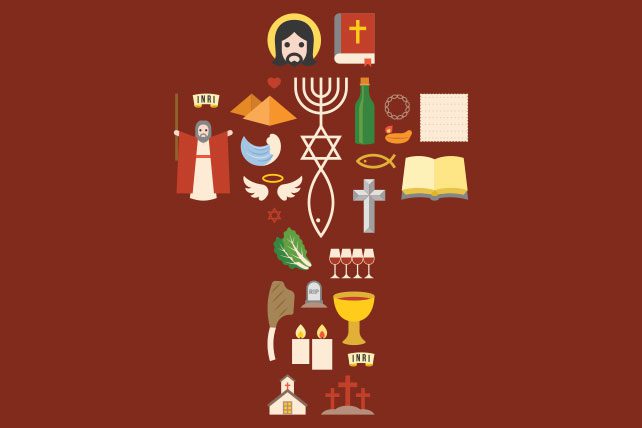The relationship—Messianic Judaism vs. Christianity—is complex and multifaceted, rooted in deep historical, theological, and cultural contexts. One of the defining distinctions between Judaism and Christianity is the belief in Jesus Christ. For Jews, Jesus is a historical figure, but not the Messiah or divine. In contrast, Christians believe Jesus is both the Messiah and God the Son. Among evangelical Christian groups, Messianic Judaism is often seen as a form of Christianity, yet this perception is not universally accepted.
Understanding Differences: Messianic Judaism vs. Christianity
While Messianic Judaism shares many beliefs with traditional Christianity, including the divinity of Jesus and the acceptance of the New Testament, significant differences remain, particularly in cultural and ritual practices.
Messianic Judaism vs. Catholicism
Comparing Messianic Judaism to Catholicism highlights further differences, especially in church hierarchy, tradition, and sacraments. Catholicism, with its structured ecclesiastical order and sacraments, stands in contrast to the more congregational structure of Messianic Judaism, which often aligns more closely with evangelical Christian models.
Core Beliefs and Cultural Practices
Messianic Jews typically use both the Old and New Testaments, viewing them as a continuous narrative of God’s work. In terms of holidays, Messianic Jews observe Jewish festivals but may interpret them through a Christological perspective. For instance, they do not traditionally celebrate Christmas (Luke 2), as it is not a holiday originating from Jewish tradition. Instead, they might focus more on Hanukkah and other Jewish festivals, albeit with acknowledgment of Jesus’ role as the Messiah.
RELATED: The Spirit of Christmas
Population and Demographics
Estimating the number of Messianic Jews is challenging due to varying definitions and levels of practice. However, they are a growing movement, particularly in Israel and the United States. Despite this growth, exploring the population of Messianic Judaism vs. Christianity shows a smaller percentage professing belief in Jewish faith.
Going Deeper Within Messianic Judaism
Messianic Judaism is a religious movement that emerged in the 20th century, combining elements of Jewish tradition with the belief that Jesus (Yeshua in Hebrew) is the Messiah. This belief system is structured around the idea that one can embrace Jewish traditions, culture, and law, while also accepting Jesus as the promised Jewish Messiah and Savior.
Beliefs and Practices
Messianic Jews hold various beliefs that align with traditional Jewish teachings but also incorporate fundamental Christian doctrines. Central to their faith is the belief in Jesus as the Messiah who has come to fulfill the prophecies of the Old Testament. Unlike traditional Judaism, which awaits the Messiah’s first coming, Messianic Jews believe he has already appeared in the person of Jesus.
Messianic Judaism maintains many Jewish traditions, ceremonies, and laws, including Sabbath observance, kosher dietary laws, and Jewish holidays. However, they interpret these practices through the lens of the New Testament. For example, Passover is celebrated not only in remembrance of the Israelites’ exodus from Egypt but also as a commemoration of Jesus’ Last Supper, which was a Passover meal.

